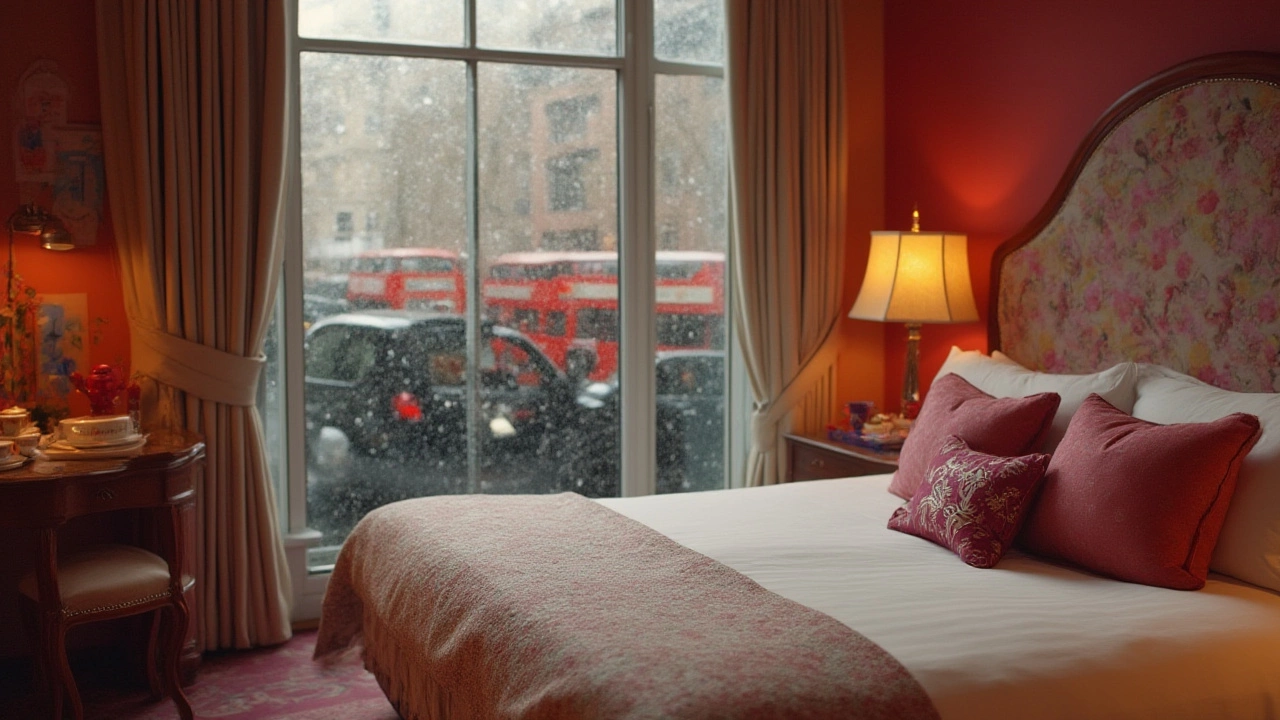You’d be surprised how many people want to know: how much does it actually cost to stay in a love hotel? Maybe it’s nobody’s go-to dinner table topic, but it pops up in travel forums, late-night conversations, and even in guidebooks. These hotels—hugely popular in Japan, and popping up in other countries—promise privacy, unique themes, and zero judgment. Their pricing is famously flexible and sometimes a little mysterious. So, whether you’re embarrassed to Google for yourself or just plain curious, buckle up. The cost of a night—or even just an hour—in a love hotel might be the most fascinating thing you learn this week.
Love Hotel Pricing Explained: How It Works
First things first: love hotels rarely do business like your average chain hotel. There’s no need to book months ahead. Instead, you usually just walk up, pick a room from a panel (sometimes without ever seeing the front desk staff), and get settled in. The main thing to know is that you’re not paying for a standard overnight stay. These places offer different fee structures—like ‘rest’ (short stay, usually from one to four hours) or ‘stay’ (an overnight, typically from 7 PM to 10 AM the next day). Want a quick nap? Or a whole night to forget the world? Both are on the menu.
It’s not all just about privacy either. Many love hotels invest big money in themed rooms—think underwater fantasy, medieval castles, and high-tech suites straight out of a sci-fi movie. You’re paying for variety and, sometimes, a bit of spectacle. No wonder some couples book them just for a wild experience, not necessarily for romance.
Now, let’s talk numbers. In Japan, where love hotels are an institution, the average ‘rest’ rate for two people ranges from 2,500 to 6,000 yen (about $16–$40 USD) for a block of two to four hours. An overnight ‘stay’ usually costs between 6,000 and 15,000 yen (about $40–$100 USD). Everything depends on location, day of the week, room type, and how decked out the suite is. Weekends and public holidays can easily bump prices 20–50% higher.
Outside Japan, in places like South Korea, Taiwan, Brazil, and even certain parts of Europe, you’ll find similar setups. In Seoul, for example, love motels tend to cost the equivalent of $20–$80 per night. Some luxury ‘boutique’ love hotels in South America or Europe can stretch beyond $200 per night—especially those with private pools or entertainment setups. The takeaway? You’re looking at a price range that’s flexible and, at the lower end, surprisingly cheap compared to traditional hotels.
Let’s bring in a real-life stat: according to a 2023 survey of Tokyo’s Shibuya and Shinjuku districts by the Japan Love Hotel Association, the average price for a ‘rest’ (i.e., a two-hour block) was 3,520 yen ($23.50 USD), and for an overnight ‘stay’, it was 9,800 yen ($65.45 USD). Those numbers are about the same or slightly less than a decent business hotel or Airbnb, but here, you get themed décor and, well, discretion thrown in for free.
Factors that Impact Love Hotel Rates
It’s easy to think every love hotel must be the same—just a bed, maybe some mirrored walls, and soft lighting for romance. But there’s a lot more under the surface, and the rates reflect that. The biggest factor is location. Prime spots near major city centers (like Shibuya, Shinjuku in Tokyo, or Gangnam in Seoul) run higher than suburban or rural equivalents. A room with a hot tub, karaoke, or a rotating bed in Ginza is not costing you the same as a basic rural highway stop.
Timing matters, too. Peak prices hit before lunch hours, in the evening rush, and on weekends or holidays. Early-morning or weekday afternoon stays tend to be cheaper. Some hotels have electronic boards or websites that update rates in real time, like airfare. Loyal customers often watch for flash deals or use member cards for 10-15% off the bill.
Room themes are another wild card. If you want a basic room, maybe you just want privacy or need a break during the day. Pick a room that’s decked out with black lights, a playroom, or a ‘fantasy suite’ with a canopy bed, and you’ll often pay 30-80% more. According to a 2024 industry report from Nikkei Trendy, unique themed rooms make up about 28% of profits for higher-end love hotels, despite only being around 15% of their total rooms. People are willing to shell out extra for novelty, especially if they’re celebrating an anniversary or just want to shake up date night.
Hotels with extra amenities—private mini-pools, saunas, unlimited food and drink, or even cosplay wardrobes—increase the price scale quickly. Some Tokyo love hotels rent costumes by the hour, starting at around 500 yen ($3 USD), adding another fun dimension to your bill. It’s a little like add-ons at a theme park: you get to decide how wild (or tame) the experience should be for your wallet.
Not into wild themes? Some “designer love hotels” now sell themselves on slick interior design, tech features, or gourmet room service. They attract couples, but also solo travelers hunting for privacy. Boutique love hotels near Osaka’s Umeda district in 2023 reported that up to 20% of their guests were solo women just looking for a stylish, quiet night’s sleep. That’s helped push up rates for designer or luxury concept hotels. Some even offer direct-to-room check-in and checkout, so you don’t need to interact with a soul.
Below is a comparison table of average love hotel prices (2023-2024) for some key cities:
| City | Rest (2-4 hours) | Overnight Stay | Special Themed Suite |
|---|---|---|---|
| Tokyo | ¥3,200 / $21 USD | ¥10,000 / $67 USD | ¥16,500 / $110 USD |
| Osaka | ¥2,800 / $19 USD | ¥8,500 / $57 USD | ¥13,000 / $87 USD |
| Seoul | ₩25,000 / $18 USD | ₩80,000 / $59 USD | ₩150,000 / $110 USD |
| Rio de Janeiro | R$80 / $16 USD | R$300 / $60 USD | R$600 / $120 USD |

Tips for Saving Money on Love Hotel Stays
Paying less for a love hotel stay isn’t just about picking the cheapest room. There are a bunch of smart hacks seasoned travelers and locals use to shave a few bucks off—and not sacrifice the fun.
- Try off-peak hours: Early weekday mornings or afternoons see the lowest rates. Avoid weekends and holidays if your schedule lets you.
- Hunt for member discounts: Many hotels offer free point cards after one or two visits. Points stack up fast and can slash 10-25% off room rates or add free hours to your stay.
- Use hotel websites: Some chains update special deals online just hours before a room would go unused. Spontaneity can pay off.
- Go with the ‘rest’ plan: Not staying the night? Use a short “rest” block for half the price of a full night. Great for locals or travelers just needing downtime.
- Limit room service and extras: Extra drinks, elaborate meals, or costume rentals can make a cheap stay suddenly pricey. Bring snacks or drinks with you if you’re trying to keep it on budget.
- Pick less popular neighborhoods: A love hotel in Shibuya or Times Square is fun, but a train ride to a quieter spot can drop your price by 20–50%.
- Read reviews: Some older hotels haven’t kept up with standards, so you may pay less but get faded décor or less privacy. Tripadvisor and local dating forums give up-to-the-minute scoop on which hotels are worth the splurge.
- Stay flexible: Prices can swing up or down 30% in one week, especially during events, local festivals, or rainy weather. Check for sudden price drops.
Here’s another real-world tip: in Tokyo, the Love Hotel Hill area near Shibuya is packed with different options. Locals sometimes walk a loop, check electronic price panels on the street, and grab the best deal. Window shopping works here as easily as for a pair of shoes, and a lot less awkward than you might think.
And don’t forget that using a love hotel doesn’t mean sneaking around. More couples use them openly for adventure or just to get away from roommates or noisy kids at home.
Fun Facts and the Modern Love Hotel Experience
Think love hotels are dodgy or old school? That’s way off the mark these days. Some properties are practically works of art, mixing pop culture, futuristic lighting, and spa-level amenities. In Japan, nearly 40,000 love hotel rooms operate nationwide as of early 2024, serving an estimated 2 million couples per day according to the Japan Love Hotel & Leisure Federation.
And it’s not just Japan. South Korea’s “yeogwan” and “motels” have gone family-friendly in some cities, adding party spaces and karaoke rooms for birthdays or group outings. In Brazil’s major cities, luxury suites are pitched as romantic getaways, not just secret rendezvous spots. In Taipei, themed rooms are featured in couples’ guidebooks—think castles, spaceships, and even underwater paradises.
Want wild themes? One Tokyo hotel has a giant Hello Kitty suite for diehard fans. Another in Osaka has a ‘submarine’ room complete with portholes and blue-lit walls. High-rollers go for private pools, arcade machines, or cinema setups. Not everyone might be into a disco ball above the bed, but the range means you can pick exactly the level of kitsch or class you want.
And the privacy thing—yes, it’s as discreet as you imagine. You can check in through a touchscreen, pay into a machine, and tiptoe to your room without talking to a soul. Some hotels now have robotic room service, so you don’t even need to see a person for snacks or fresh towels. Others are experimenting with app-based reservation and payment systems, bringing digital convenience to an already efficient system.
Best part? Many people are discovering love hotels for solo travel, work, or digital detox escapes. Need a nap or quiet space? These hotels often offer better blackout curtains and solid noise insulation than bargain hotels. Travel bloggers in 2024 have started rating love hotels not just on their romance factor, but as quirky alternatives for travelers tired of cookie-cutter hotel chains. Some even offer special “ladies’ plans” or “workcation” deals with discounted long stays, free WiFi, and coffee service for solo guests.
Love hotel cost is about so much more than just a secret tryst. The industry is adapting, innovating, and sometimes flat-out surprising—a brilliant case study in how a once-taboo business can open its doors (literally) to just about everyone. So next time you’re looking for privacy, a quirky adventure, or just something different, don’t be shy. The only thing stopping you is maybe the embarrassment of picking from a menu of themed rooms—but after you see the price tag, you might just become a regular.

